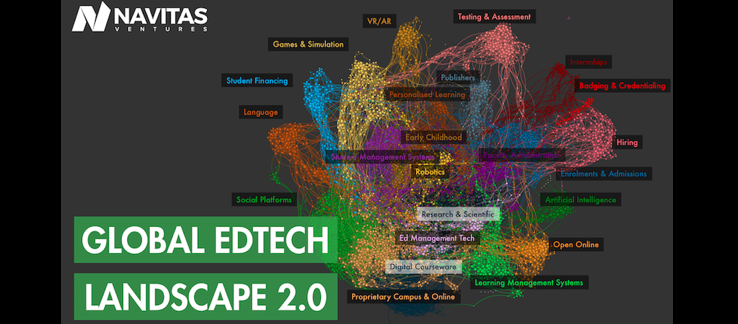
2018 Trends in EdTech
Tim Praill, recently appointed as the Head of Navitas Ventures, reflects on emerging trends in the EdTech sector.
It continues to be an exciting period for the EdTech sector globally. Having returned from the ASU+GSV summit in San Diego, it is clear that investors and startups remain bullish about prospects for new technologies and for growth across the sector over the next 12 months.
ASU+GSV provided an opportunity for the team at Navitas Ventures to engage with investors, followers and founders to share our research and better understand these trends. This included the founders from each of the 11 early-stage education technology startups in Australia and the U.S. in which we now hold investments, who had the chance to share more about their plans to further build these businesses.
The summit was also a chance for us to share a sneak peek into Project Ecosystem, our soon-to-be-released research into the EdTech ecosystems of over 20 cities around the world. This piece of work builds on our established Global EdTech Landscape research work that has mapped 15,000 teams and over $50 billion dollars of investment in EdTech in over 50 countries around the world.
From this research and Navitas’ engagement with our university partners and entrepreneurs around the world, we see a number of clear trends emerging.
Top 5 EdTech trends to look out for in 2018:
- A strong focus on pathways to employment
This means a greater focus on internships, career advice and making sure a student is job ready and work ready. - Student recruitment
New technologies are emerging to help students find the right study destination and we’re also seeing new platforms emerge with the aim of disrupting how students pay for overseas study. - Artificial Intelligence (AI)
This type of technology is on everyone’s lips and is starting to be developed further. The question is: how will it affect education going forward? We’re referring here not just to the business of education, but the actual learning and teaching environment. - Blockchain
We don’t believe it will have a huge impact on education in the next few years, but blockchain technology has the potential to influence how learners own and manage their own credentials. - The education and work sectors – a dissolving boundary
Technologies and companies working on the edges of talent and learning are a huge trend right now. Study units such as placements and internships are being reinvented. From the other side, we see technologies mapping skills and jobs with courses and learners. This area will see considerable activity over the next few years, not just for education companies and organisations in the training world, but also technology companies – because it’s all about the data.
EdTech predictions for the next five years:
- It is becoming clearer that EdTech is about evolution, not revolution. Right now, what we’re seeing for the future is further focus on the ‘ed’ part of EdTech – that is, less emphasis on the software and the tools, and more focus on the students and the teachers.
- We also think we’ll see fast growth out of China and Asia, as those emerging markets really start to increase their efforts in education as one of the key drivers of talent and their entire economy. Over the last year we’ve seen lots of activity and investment in China and India, where there is an increasing level of sophistication. These countries have massive populations becoming more tech-enabled, and both countries place a big focus on the importance of education. So we’re really going to see considerable innovation coming out of these countries in the future.
- On the flipside, we think the U.S. will slow down a little bit, as it’s been through a period of fast growth, and is now moving into a period of consolidation. In Australia, we’ve also seen rapid growth, with EdTech emerging as the second-biggest industry vertical in the startup space. We believe we’ll see a consolidation here also in coming years.
In the video below we hear from Tim Praill who recently shared his views on current trends and the future of education technology.
Explore the Global EdTech Landscape LIVE from San Diego #ASUGSV2018 #globaledtech https://t.co/qVzWFZW0tw
— Navitas Ventures (@navitasventures) April 17, 2018



